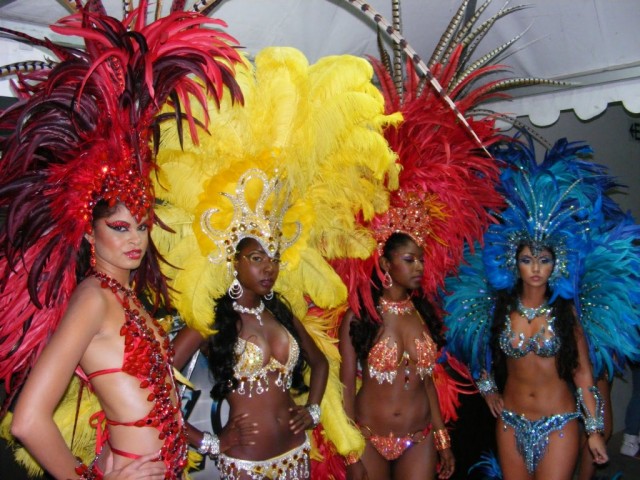Festivals and Carnivals
Festivals and carnivals serve a multitude of social, religious, and political purposes. In Africa such events have been documented in travel books, museum displays, and studies of ethnic culture. Traditional celebrations also have been incorporated in dance and theater performances. Both scholars and the people who participate in festivals often view them as fixed traditions, handed down unchanged from generation to generation. In reality, however, African festivals are constantly changing. They take different forms as people forget old elements or add new ones and adapt to new circumstances.
African festivals and carnivals fall into five general categories. Within each category are many variations. Each festival has its own flavor shaped by the identity of the participants and the way music, dance, dress, food and drink, merriment and seriousness, and ritual are combined in the event.

The first category includes royal rituals and festivals of sacred kingship. Such festivals took place in areas where centralized states developed in sub-Saharan Africa. Many are linked to the kingdoms and empires of West Africa and to areas of central and southern Africa where BANTU states arose. The Shango festival of Nigeria's YORUBA people is typical of these royal celebrations. By purifying and giving power to a sacred ruler, participants seek to renew or protect the order of the natural world and society. Such festivals—sometimes called “new yam” or “first fruit” ceremonies—usually take place during harvests.
A second type of African festival is the masquerade, linked in some places with the celebration of sacred kingship. Masquerades honor spirits of the dead, social groups, or SECRET SOCIETIES and associations. Traditionally, masquerades were held to soothe the dead and control witchcraft. The costumes of masqueraders often reflect images of power, such as colonial officers or airplanes.
Muslim festivals are celebrated across North Africa and in many parts of West Africa, areas where the Islamic religion has taken hold. The principal festivals are associated with Ramadan, the ninth month of the Muslim calendar. The final night of Ramadan, called Id al-Fitr, is a particularly joyous occasion. In some West African kingdoms, people blended elements of traditional African rituals into the Muslim's annual Sallah festival performed on Id al-Fitr. During the Sallah festival, the ruler gave gifts to his chieftains. Then, surrounded by drummers and singers, political and religious leaders on horseback proclaimed their loyalty to their leader before thousands of spectators.
Colonial festivals are the fourth category of African festivals. These were introduced or arranged during colonial times by the European powers that controlled most of Africa. Such events supported colonial authority by inspiring loyalty to European symbols and leaders. In the African colonies of Britain, for example, Empire Day provided a festive celebration of British rule. Colonial officials held sports competitions and distributed food and prizes.
National festivals, the fifth category, are state-sponsored celebrations of arts and culture. They emerged along with the cultural nationalism of the independence movements that swept Africa in the mid-1900s. Once the former colonies had achieved independence, the festivals developed into expressions of national identity. They occur at all levels of political organization, from local districts or provinces to an entire country. National festivals try to weave the various ethnic identities of the peoples within a country into a single modern culture. They often adapt traditional ritual and masquerade performances to suit this goal.
Occasionally similar festivals are organized on an international or global scale. SENEGAL, for example, has hosted a World Festival of Black Arts, and NIGERIA has held a World Black and African Festival of Arts and Culture. (See also Dance, Independence Movements, Masks and Masquerades, Music and Song, Religion and Ritual, Spirit Possession.)